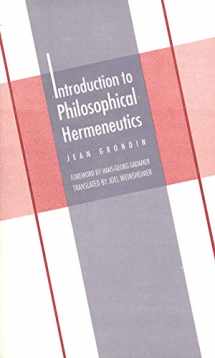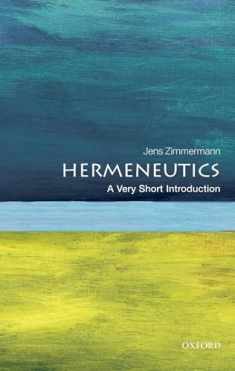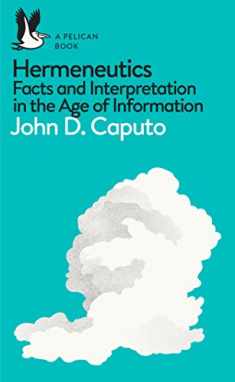
Introduction to Philosophical Hermeneutics (Yale Studies in Hermeneutics)
Book details
Summary
Description
In this wide-ranging historical introduction to philosophical hermeneutics, Jean Grondin discusses the major figures from Philo to Habermas, analyzes conflicts between various interpretive schools, and provides a persuasive critique of Gadamer's view of hermeneutic history, though in other ways Gadamer's Truth and Method serves as a model for Grondin's approach.
Grondin begins with brief overviews of the pre-nineteenth-century thinkers Philo, Origen, Augustine, Luther, Flacius, Dannhauer, Chladenius, Meier, Rambach, Ast, and Schlegel. Next he provides more extensive treatments of such major nineteenth-century figures as Schleiermacher, Böckh, Droysen, and Dilthey. There are full chapters devoted to Heidegger and Gadamer as well as shorter discussions of Betti, Habermas, and Derrida. Because he is the first to pay close attention to pre-Romantic figures, Grondin is able to show that the history of hermeneutics cannot be viewed as a gradual, steady progression in the direction of complete universalization. His book makes it clear that even in the early period, hermeneutic thinkers acknowledged a universal aspect in interpretation―that long before Schleiermacher, hermeneutics was philosophical and not merely practical. In revising and correcting the standard account, Grondin's book is not merely introductory but revisionary, suitable for beginners as well as advanced students in the field.


We would LOVE it if you could help us and other readers by reviewing the book
Book review





